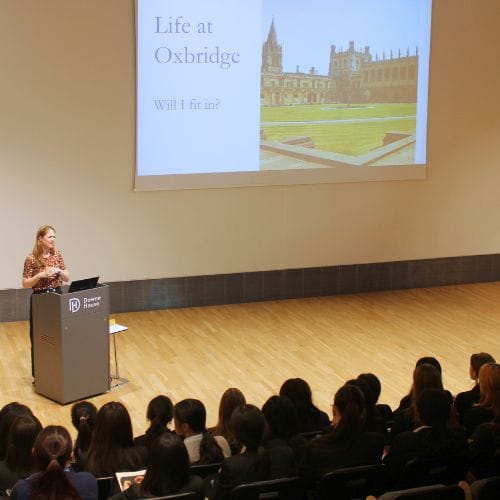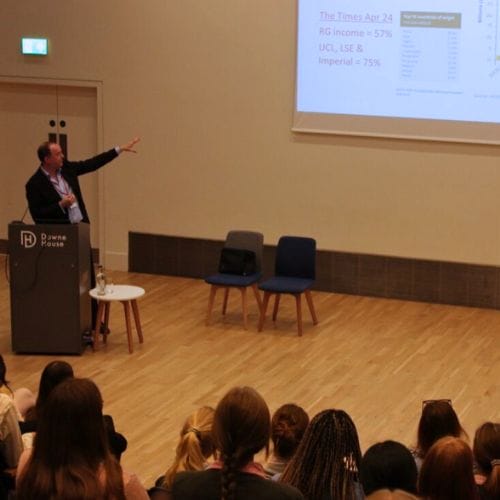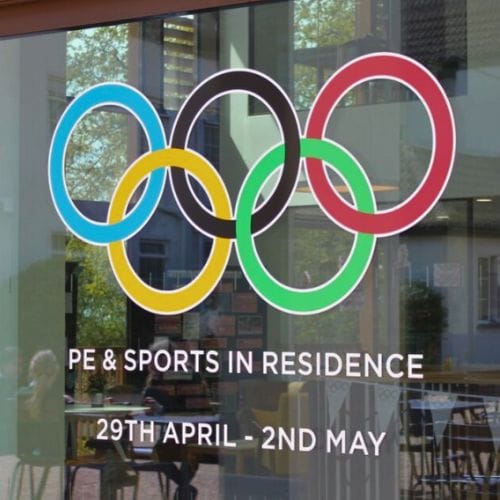
Mrs Sabnis (Head of Modern Foreign Languages) answers the question: what’s the point of learning a language in a world where English dominates?
It is difficult to know which argument to start with, such are there many, when someone asks what’s the point of learning a language in a world where English dominates and AI seems to be creeping into ever more aspects of daily life. Of course they set you apart in an increasingly competitive job market and they help to develop the soft skills (tolerance, communication skills etc) that employers so desperately seek when recruiting. In fact, it was only very recently that I heard of a former pupil landing a banking job over another candidate because they had a GCSE in Mandarin!
My favourite argument, though, is that you just can’t understand the psyche of a people if you don’t know their language. Despite the best efforts of translators, the nuance of certain words, the rhyme of poetry and the emotional value that specific words hold are amongst several things which get lost in translation. When you can read the media that native speakers consume and get to grips with the stories, films and music which form that culture, you understand people in such a different way.
Our study of La Haine in A-level French is an excellent example of this. The verlan (common French slang in which words are turned inside out, such as meuf for femme) used in it, originally created in the poor Parisian suburbs known as la banlieue, as a secret language to avoid police detection, has become commonplace in standard spoken French. Les keufs would directly translate as the police in English but what this translation misses is the very negative connotation that this word holds to French people. This translation doesn’t convey the low regard that many French people have for the police after numerous cases of police brutality over the last thirty years. So, whilst understanding a language literally helps us to understand what people are saying, it can also really help us to understand why people are the way they are. In a world where a language faux pas can start a war, I think that’s one of the most useful skills to have!
We are extremely fortunate to have five languages on timetable at Downe House, each with their own particular benefits. French and Spanish are popular and benefit from language assistants who spend a year away from France or Spain to help coach our pupils, with a focus on their speaking. As a Confucius classroom, Chinese also benefits from an assistant who visits from China each year as well as funding for a plethora of enrichment activities. Italian and German benefit from cosy, smaller classes but still offer a wealth of super-curricular activities. We are proud to also offer Arabic, Japanese and Russian in the form of paid-for, off-timetable lessons.
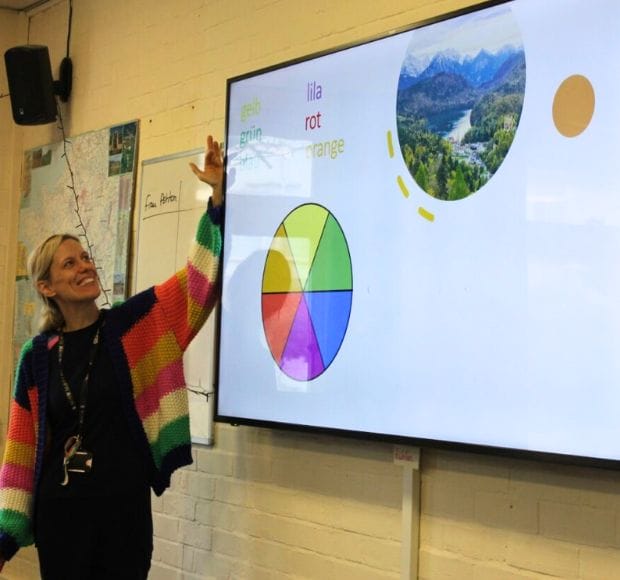

As linguists, in the MFL department we are all aware of that moment where a language suddenly clicks and everything falls into place. Suddenly all of the grammar tables and complex rules can be resigned to a dusty drawer as you can suddenly start to hear whether what you’ve said sounds right. That’s the moment we all aim for with our pupils. It’s a bit like learning to ride a bicycle. We start with lots of structures and rules and then the stabilisers come off and pupils get better and better at forming their own sentences. All, by the end of A-level, are well on their way to fluency in the language.
Each year we hold a Language Taster Day for Lower Fourth pupils so they can experience taster sessions for the different languages we offer at Downe – see the full list here. This year we were also delighted to welcome back DH alumna, Alice Peters (DH 2022) to speak to the girls about the difference languages have made to her life.
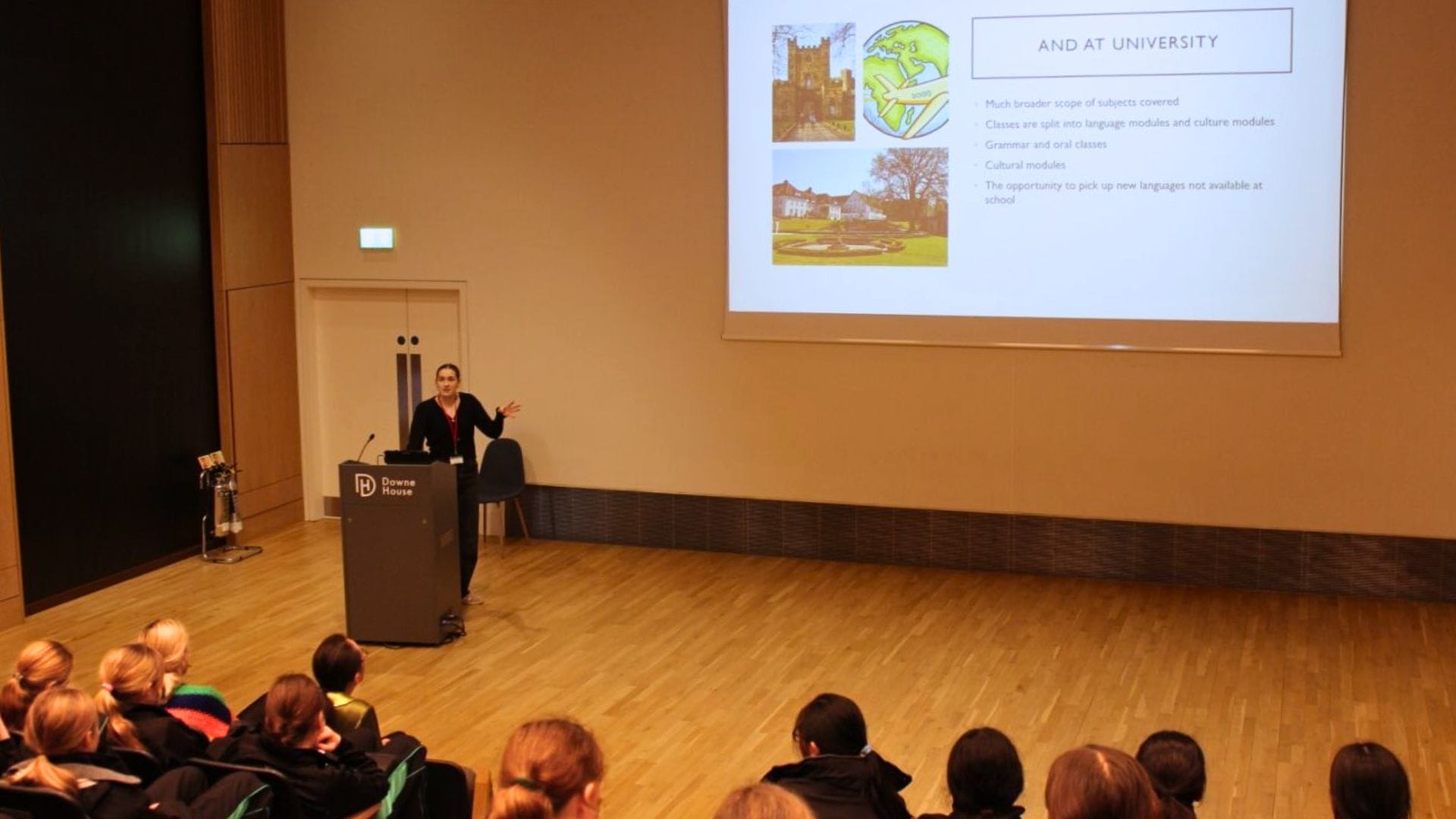
Some thoughts from pupils studying Languages at GCSE and A Level:
I think that it gives me more exposure to different cultures and I also get to pick up something new.
You can show it off to other people. Learning a new language will also let you go to that country with your friends which is very fun.
I enjoy the Italian course and all the different aspects of language and culture that we study.
I like the structure that languages provide, and I think it is super useful for life beyond my A-levels!
Click here to discover more about Languages at Downe House.






